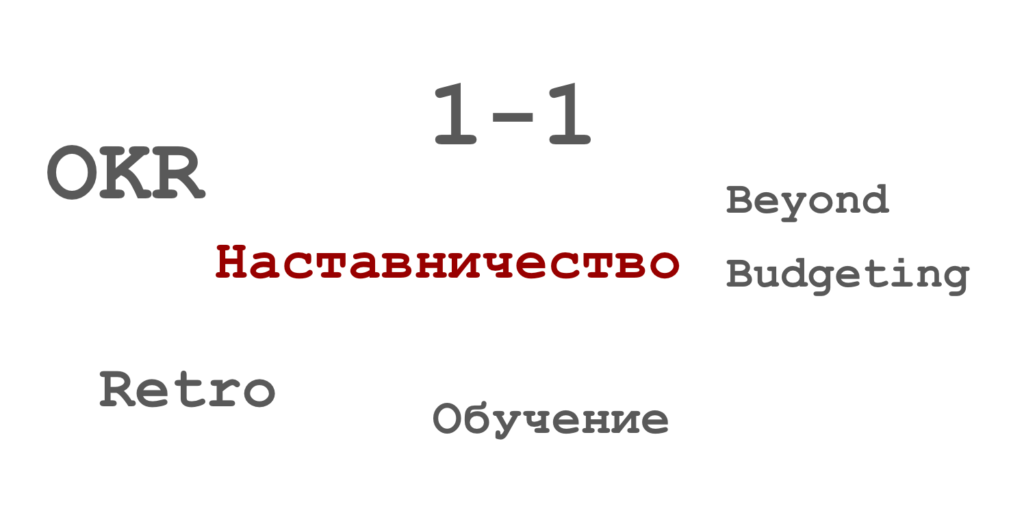
A modern manager for his team must, first of all, be a mentor, or, as it is commonly called lately, a coach. This is the main aspect of management that allows a business to thrive. In modern IT companies (and all companies inevitably become IT companies – technology businesses), special attention is paid to the development of employees and the creation of a favorable working atmosphere. Let’s look at the key techniques and tools that help managers effectively fulfill this role.
OKR (Objectives and Key Results)
OKR (Objectives and Key Results) The OKR (Objectives and Key Results) methodology is a powerful tool for setting and achieving ambitious goals. It helps the team see clear goals and understand how achieving them affects the overall success of the company. A manager, using OKRs, can guide their employees by helping them set meaningful and measurable goals, which contributes to their professional growth and development.
Regular, in a normal situation – monthly, review of the company’s OKR, clarification of the goals of departments and synchronization among employees in teams – a very useful, and in some places critical for the survival of the business, task of every manager.
Beyond Budgeting
Beyond Budgeting (in Russian it is more like “flexible budgeting”) is an adaptive approach to financial and resource management that allows companies to adapt to rapidly changing market conditions. It replaces traditional annual budgets with more dynamic and relevant plans. A manager using Beyond Budgeting becomes a coach, helping the team navigate change and effectively allocate resources to achieve strategic goals.
Flexible budgeting is of particular importance in the interaction between the financial department and commercial departments. A properly constructed process and communication allows you to set up a two-way process of regular (or even constant) exchange of information between the departments responsible for PnL and employees who are involved in financial planning and analysis (FP&A).
Retrospective meetings
Retrospective meetings are an important element of the agile methodology and allow the team to regularly review their work and find ways to improve. The manager-mentor organizes these meetings, creating a safe space for open discussion of mistakes and successes. This promotes a culture of continuous improvement and increases employee engagement.
1-1 meetings
Individual meetings (1-1) between manager and employee are a key tool for building trust and individual development. At such meetings, the manager can better understand the motivation and needs of each employee, provide constructive feedback and help in resolving professional and personal issues. This creates the basis for long-term cooperation and personal growth.
Mentoring and coaching
Mentoring and coaching are an integral part of modern management practice. A manager acting as a mentor helps employees develop their skills and competencies, guides their career growth and supports them in difficult moments. Coaching, in turn, helps to unlock the potential of employees, stimulating them to find their own solutions and achieve high results.
A modern manager is, first of all, a mentor and coach for his team. Using tools such as OKR, Beyond Budgeting, retrospective meetings and 1-1 meetings, the manager creates conditions for the professional growth of employees and the achievement of the company’s strategic goals. Mentoring and coaching become central elements of management, helping to create a strong and motivated team, ready for new challenges and achievements.